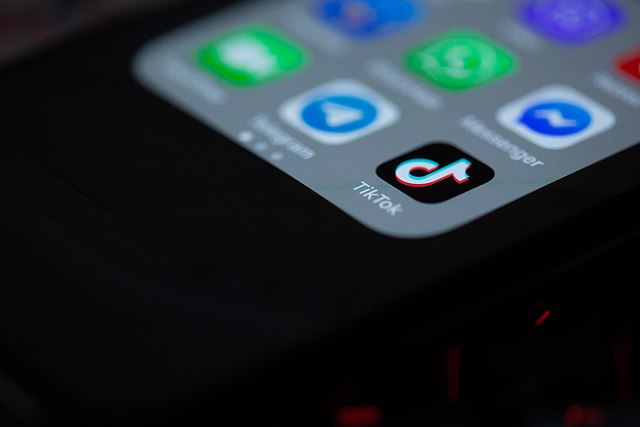
BY NEHA NAYAKKAR
We live in 1984. Not literally, but some say our current setting isn’t that much different than the totalitarian world created by novelist George Orwell.
In recent years, news of data harvesting on behalf of social media platforms has been growing. It’s becoming apparent that individuals not only need to take care of their physical safety — but also their digital safety. Though stories of individuals being watched in their media usage keep surfacing in reports, young generations that rely on social media and the Internet may not be doing enough to keep themselves safe.
“An account on TikTok, with no followers, started reaching out to my friends and me and commenting on our posts. It was really random and they said they were a kid from our school who wanted to hang out with us — but we had never heard of them,” Scarsdale High School student Abigail Underweiser said. “It was really creepy to know that someone out there was talking to me and had seen photos of me, yet I had no idea who they were.”
These stories are not uncommon for today’s youth.
Today’s popular social media platforms, such as TikTok and Facebook, have a history of being widely criticized for engaging in “excessive” data harvesting. In 2019, Mark Zuckerburg, Facebook CEO, testified in front of Congress about his company’s role in data harvesting for Cambridge Analytica for political advertising.
Many young students are quite active on social media, usually hailing accounts on multiple different platforms.
“I use Instagram, TikTok, and Youtube daily,” Scarsdale High School student Irene Li said.
However, not all students in Generation Z use social media.
“Other than for school purposes, I don’t have social media. I don’t have Instagram or Twitter or Snapchat or Discord—-or any of those things,” Weiss said. Her personal choice to stay away from social media is novel in a generation that relies on social media.
When the students were asked their opinions on whether they felt unsafe on social media or even the thought of being active on platforms, all three students responded with an overwhelming ‘yes.’
Many students harbor caution towards social media, personal experiences, or stories shared among friends.
Still, sixty-seven percent of teenagers use TikTok. Of that, sixteen percent use the app frequently. So understandably, when TikTok’s data harvesting case made headlines in 2020, many felt unsure how to respond to the news.
“I found out TikTok was collecting data on its users ironically through TikTok. I was shocked that such a popular app could do something as constitutional as exploiting its users. And I was even more surprised to see that TikTok got off so lightly for doing something as unconstitutional as that. Within a week or so, the news of TikTok illegally collecting data died down and everyone continued on TikTok like nothing ever happened,” Li said.
For a case that posed questions of whether to ban the app in the United States, many young people were conflicted in altering their media practices.
“I was uncomfortable to say the least. I didn’t really know what to do though, because I still wanted to use the app but I wanted my privacy,” Underweiser said.
While some were apprehensive about going back to using TikTok, many felt as though nothing had changed.
“I think the companies have a right to be able to see what kinds of things you’re doing on their app. They’re able to track what kinds of things you’re looking at so that they can develop an algorithm to give you the kind of content you want. But I think when it comes to tracking you [an individual] outside — like if you don’t share your location with them or you shouldn’t be doing things outside of the app, I think that would be the real issue,” Weiss said.
Protecting privacy settings and ensuring that necessary data stays private can lessen the chance of data harvesting.






